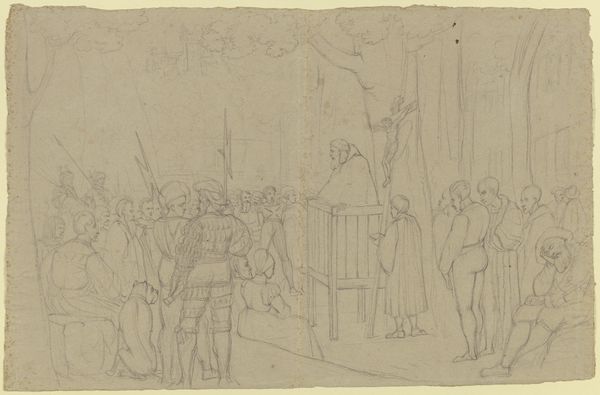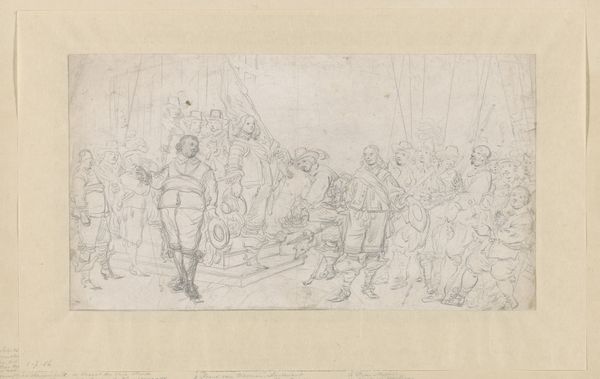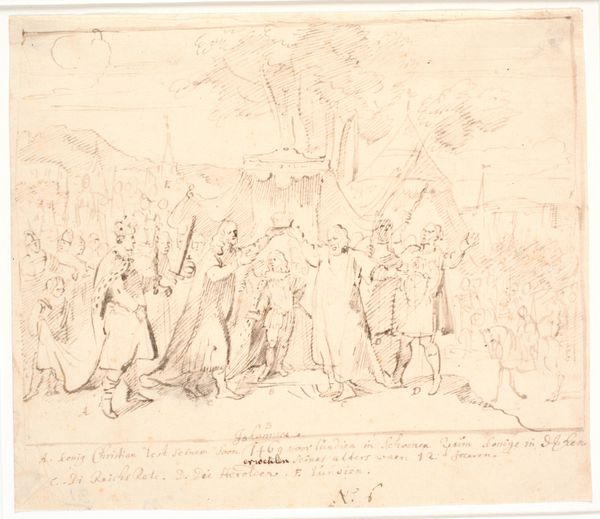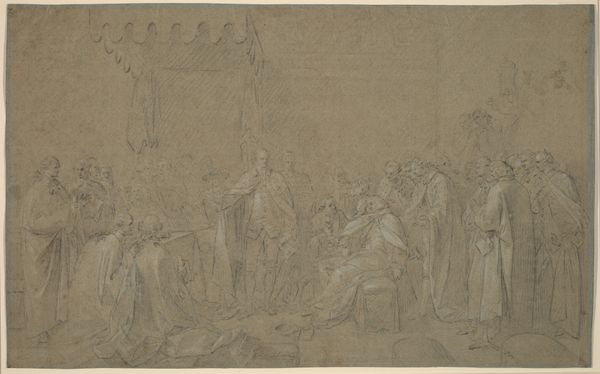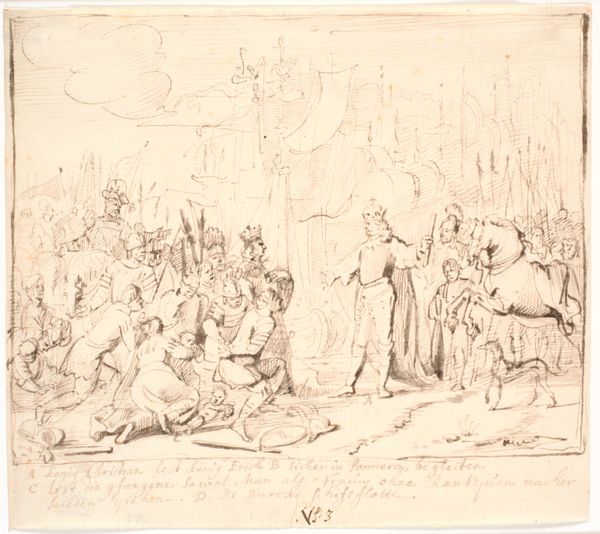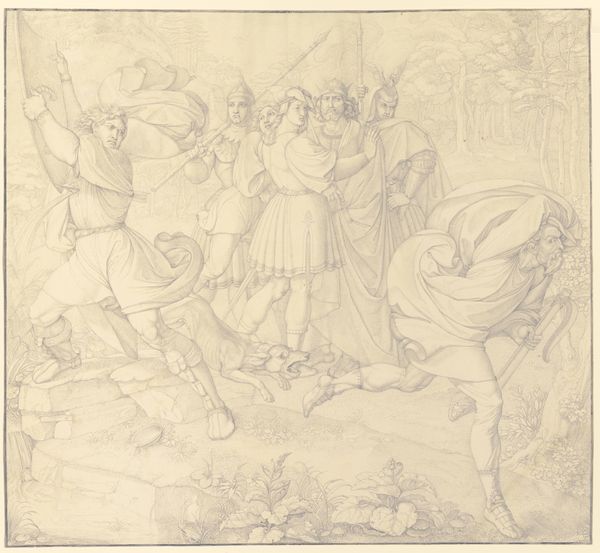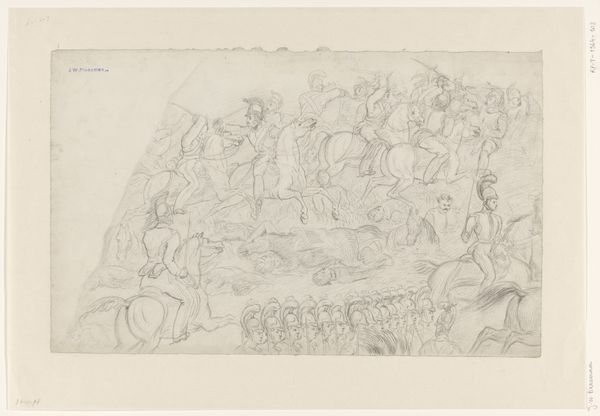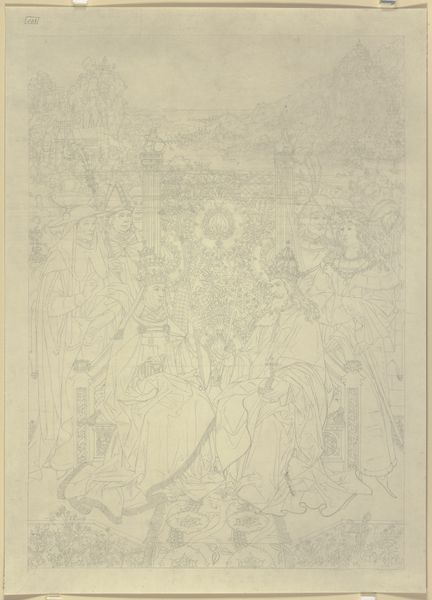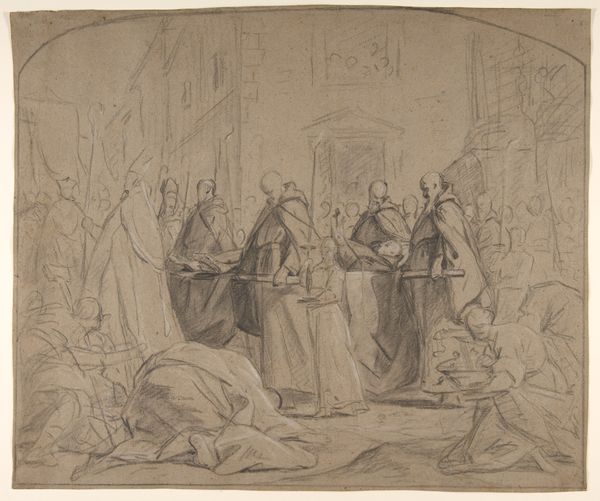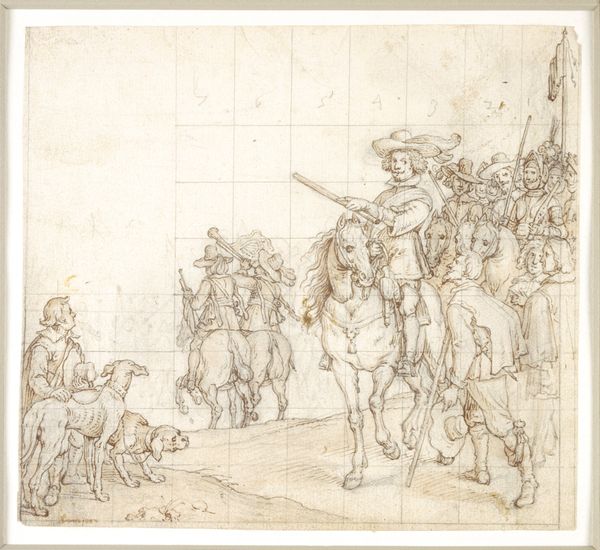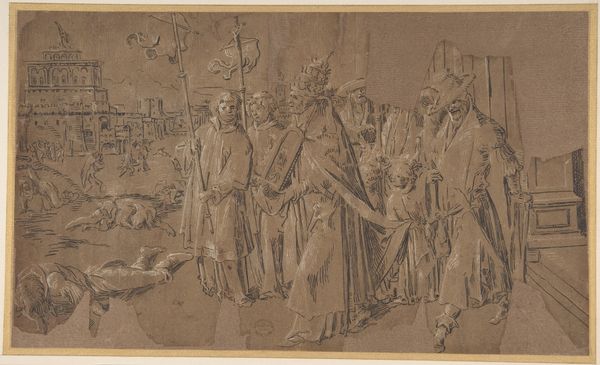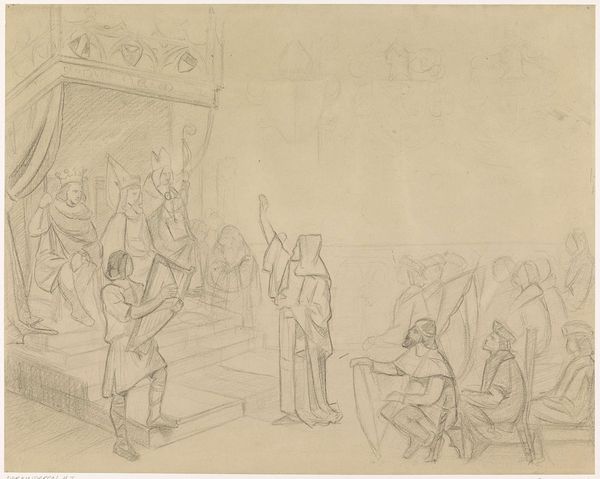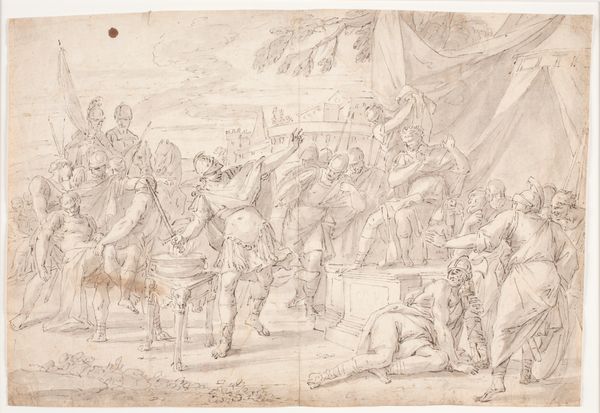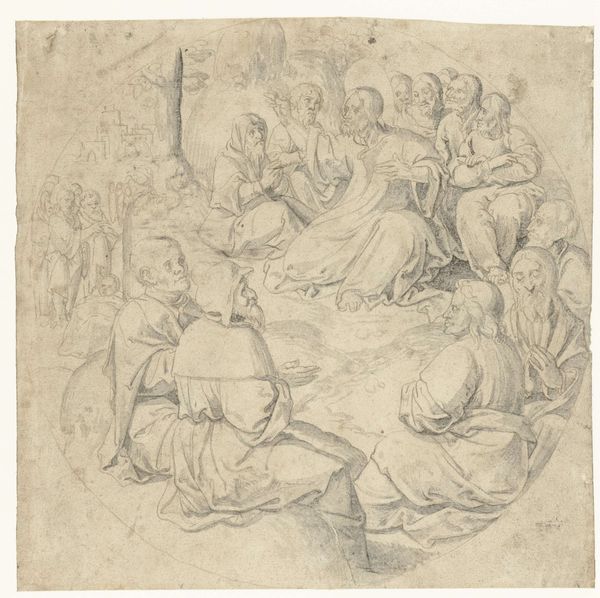
drawing, paper, chalk, graphite
#
drawing
#
narrative-art
#
figuration
#
paper
#
11_renaissance
#
13_16th-century
#
chalk
#
graphite
#
14_17th-century
#
history-painting
#
italian-renaissance
Copyright: Public Domain
Santi di Tito made this drawing, *Johannes der Täufer predigt in der Wüste*, likely in the late 16th century, using traditional drawing materials: paper and graphite. The material qualities of graphite allow for a range of tonal values, seen here in the subtle gradations that define the figures and landscape. The artist’s hand is evident in the varied pressure and speed of the lines, from the quick, light strokes suggesting foliage to the more deliberate contours of the figures. Drawings like this were often preliminary studies for larger paintings or frescoes. This particular work provides insight into the artist’s process, revealing the careful planning and attention to detail required in creating complex compositions. The immediacy of the drawing, with its visible erasures and adjustments, invites us to consider the labor involved in artistic creation. It shows us the significance of craft in understanding the full meaning of even the most seemingly effortless works of art.
Comments
No comments
Be the first to comment and join the conversation on the ultimate creative platform.
